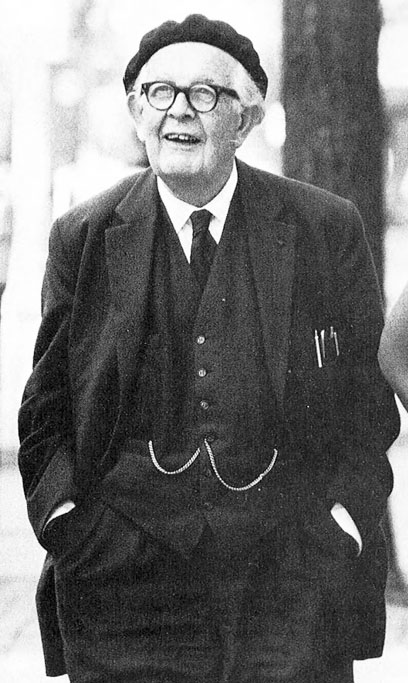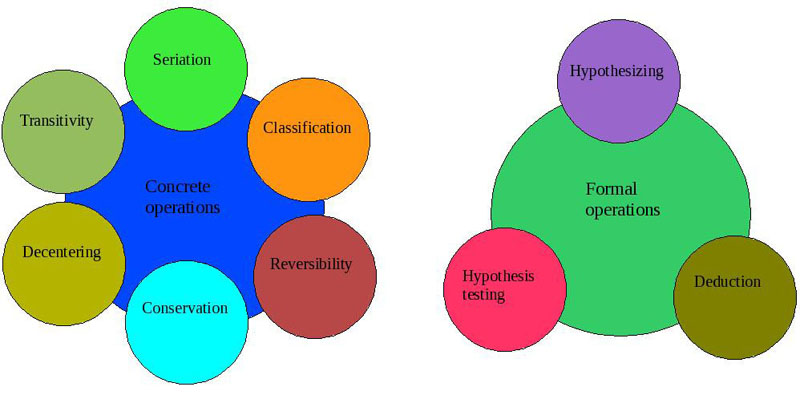Jean Piaget
- Jean Piaget proposed a comprehensive theory of cognitive development known as developmental stage theory which divides cognitive development during childhood into distinct stages characterized by qualitative differences in behavior.
- Assimilation is the process of fitting new information into pre-existing cognitive schemas. It occurs when humans are faced with new or unfamiliar information and refer to previously learned information in order to make sense of it.
- Accommodation is the process of taking new information in one's environment and altering pre-existing schemas in order to fit in the new information.
- In Piaget's theory, the sensorimotor stage is the first of the four stages in cognitive development. It extends from birth to the acquisition of language. In this stage, infants progressively construct knowledge and understanding of the world by coordinating experiences with physical interactions.
- Object permanence is a child's understanding that objects continue to exist even though he or she cannot be seen or heard.
- During the sensorimotor stage primary circular reactions involve reproduction of an event that initially occurred by chance.
- During the sensorimotor stage, secondary circular reactions involving the reproduction of an action involving an object begin. The differentiation between means and ends occurs. This is one of the most important stages of a child's growth as it signifies the dawn of logic.
- In the deferred imitation technique, an experimenter shows infants a unique sequence of actions (such as using a stick to push a button on a box) and then, after a delay, asks the infants to imitate the actions.
- Piaget's second stage, the pre-operational stage, starts when the child begins to learn to speak at age two and lasts up until the age of seven.
- Egocentrism is the inability to differentiate between self and other. More specifically, it is the inability to untangle subjective schemas from objective reality; an inability to understand or assume any perspective other than their own.
- Animism is the belief that inanimate objects are capable of actions and have lifelike qualities.
- A behavior often demonstrated in the pre-operational stage, centration is the tendency to focus on one salient aspect of a situation and neglect other, possibly relevant aspects.
- The concrete operational stage is the third stage of Piaget's theory of cognitive development in which a child's thought processes become more mature and they start solving problems in a more logical fashion. However, abstract, hypothetical thinking is not yet fully developed.
- A Piagetian test for the concrete operational stage, conservation refers to the ability to determine that a certain quantity will remain the same despite adjustment of the container, shape, or apparent size.
- The formal operational stage in Piaget's theory of cognitive development occurs from adolescence and into adulthood. At this point, the person is capable of hypothetical and deductive reasoning.

Peek-a-boo is a good test for object permanence. By the end of the sensorimotor period, children develop a permanent sense of self and object.

